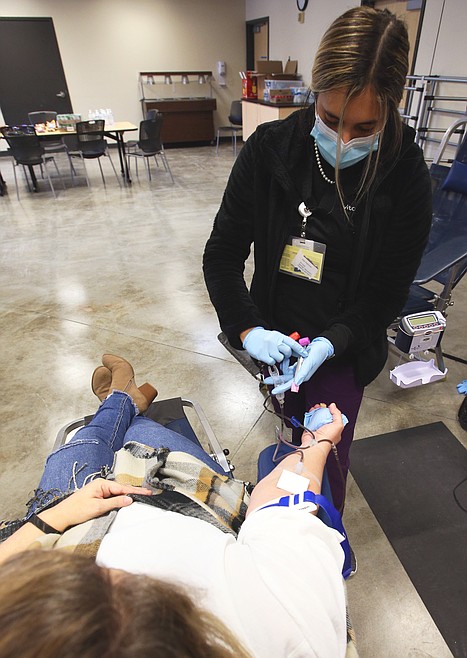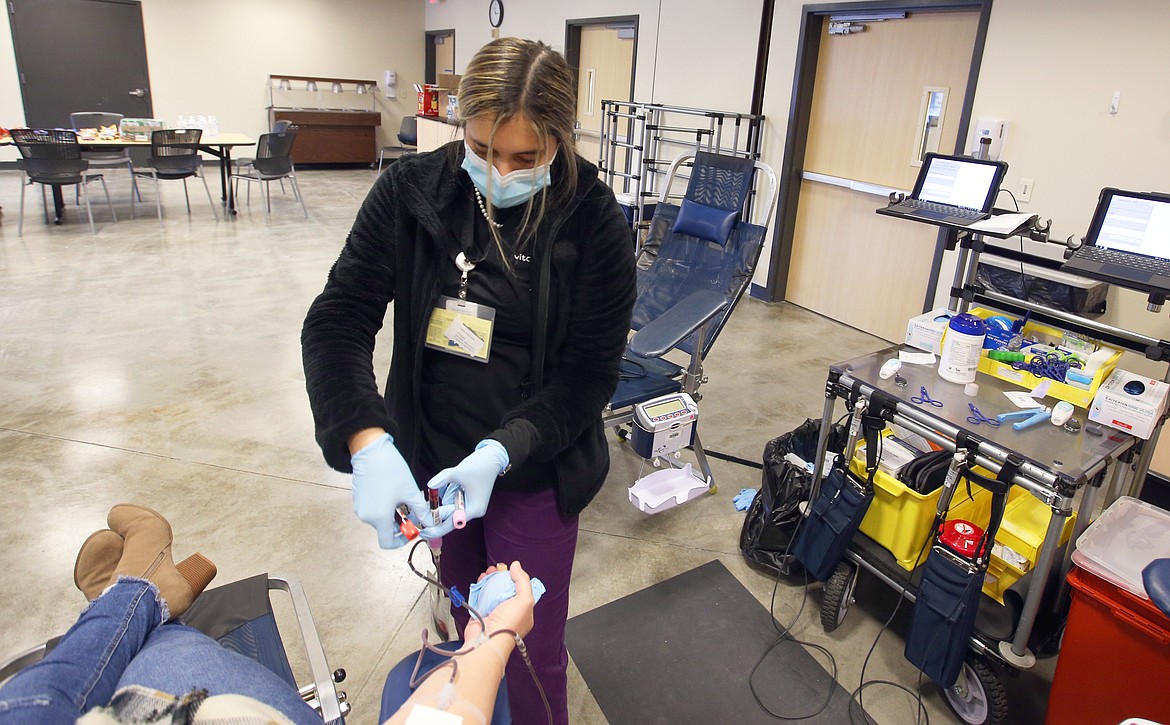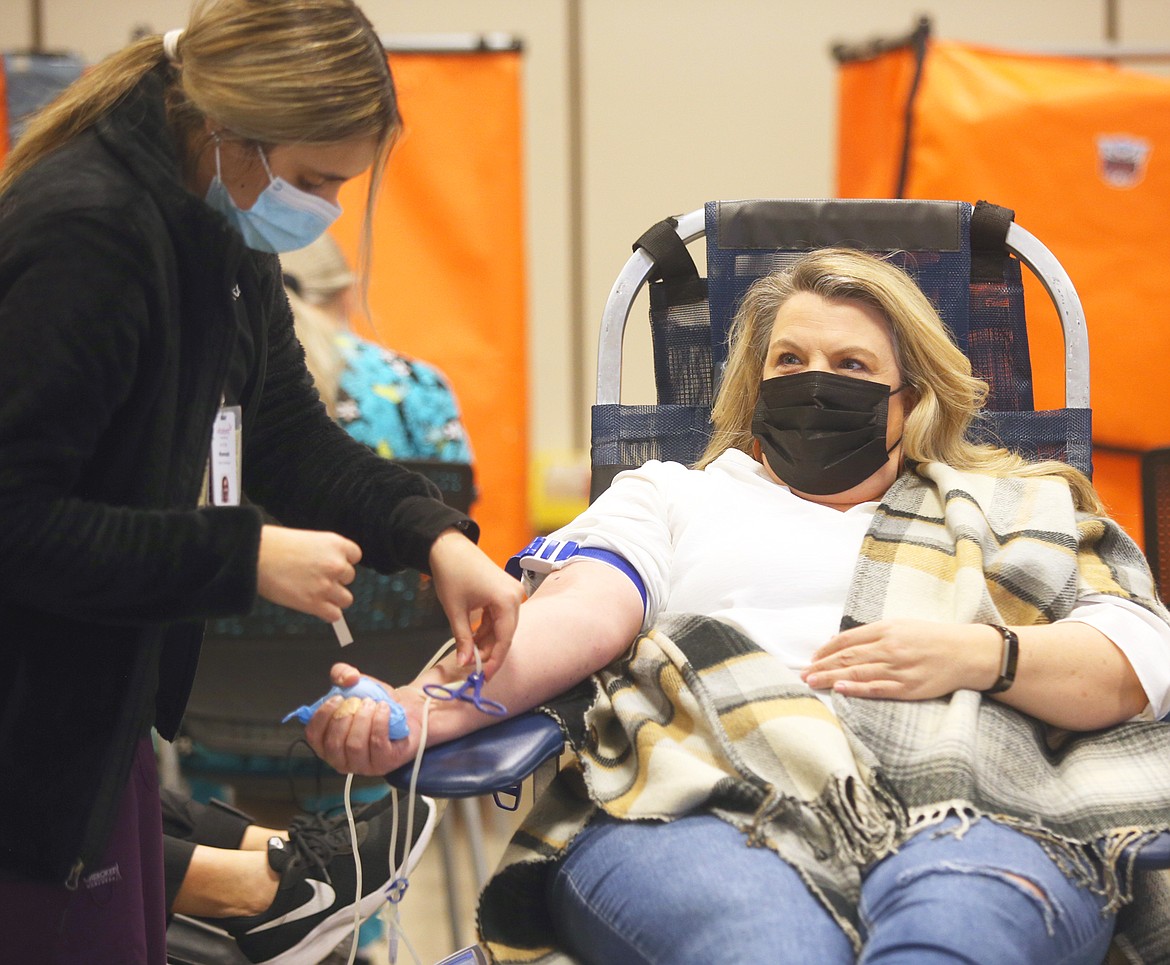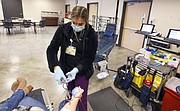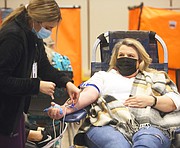Regional blood supply low
COEUR d’ALENE — Tolli Willhite, as she has done for three decades, rolled up her sleeve Friday morning to donate a pint of blood.
“There's a national blood shortage, particularly in our region,” she said. “And I carry a somewhat rare blood type, so I think it’s my responsibility to be here.”
Willhite, who has type A negative blood, is a community outreach coordinator at Kootenai Health and serves on its blood drive committee. The hospital held an employee blood drive Friday.
“I guess I am blown away by the capacity of my coworkers to continuously give up themselves to this community,” she said. “And I'm just proud to be a part of that.”
The American Red Cross recently announced it is facing a national crisis — its worst blood shortage in over a decade.
“Doctors have been forced to make difficult decisions about who receives blood transfusions and who will need to wait until more products become available,” ARC said in a release. “Blood and platelet donations are critically needed to help prevent further delays in vital medical treatments.”
ARC said the crisis is being caused by a 10% overall blood donation decline since March 2020; 62% drop in college and high school blood drives due to the pandemic and ongoing blood drive cancellations due to illness, weather-related closures and staffing limitations.
“Additional factors like a surge of COVID-19 cases and an active flu season may compound the already bad situation,” ARC said.
Audrey Hermann is territory manager for North Idaho and Montana for Vitalant, described as “the nation’s largest independent, nonprofit blood services provider.”
It serves more than 35 hospitals in the region and was at Kootenai Health for Friday's blood drive.
Hermann said the region began seeing a blood supply shortage in early January.
She said the recent heavy snows forced the cancellation of blood drives, and donors couldn’t make it to donation centers when they were open. The recent surge of new COVID-19 cases also played a role.
Vitalant prefers to have a four-day supply on hand, but is down to a two-day supply, its lowest in a few years. They don’t want to see it go lower.
“We’re ready for whatever happens. If an injury happens and if surgeries happen, we're ready for it," she said. “We're just a little bit more worried."
Vitalant is asking people — 16 and older — who usually donate blood once a year to donate twice, and it’s asking those who haven’t to consider doing so — now.
Even with continual advances in medicine, the only way to stabilize the blood supply is through donors.
All blood types are needed, but type O positive or O negative are considered universal blood donors, as their blood can be used in emergency situations.
“We have to really use our resources smartly within our area,” Hermann added. “And we also have commitments to our community, so we want to make sure we can uphold those commitments and not worry that our blood is super low.”
Willhite said it’s safe and easy to donate blood, and doesn’t take long, even if you’ve had a COVID-19 exposure, have been COVID-19 positive or received the vaccine.
“I should be in and out of here in about 45 minutes, so that's worth it to me to contribute to this,” she said.
In all her years of giving blood every eight weeks, she’s never had any side effects, either.
“I’m an easy donor," she said, smiling. "It just flows out of me like a pipe."
To donate: vitalant.org

